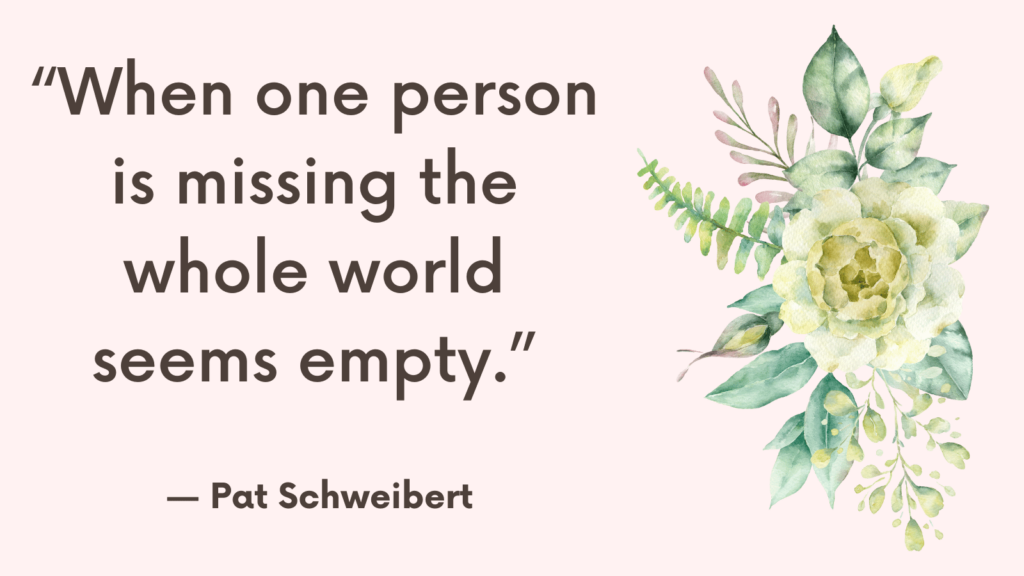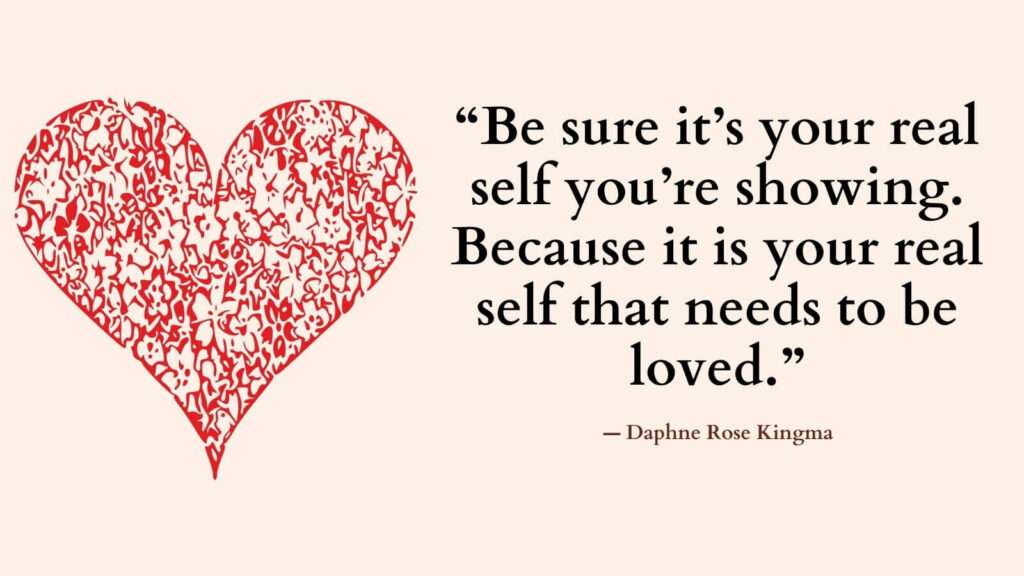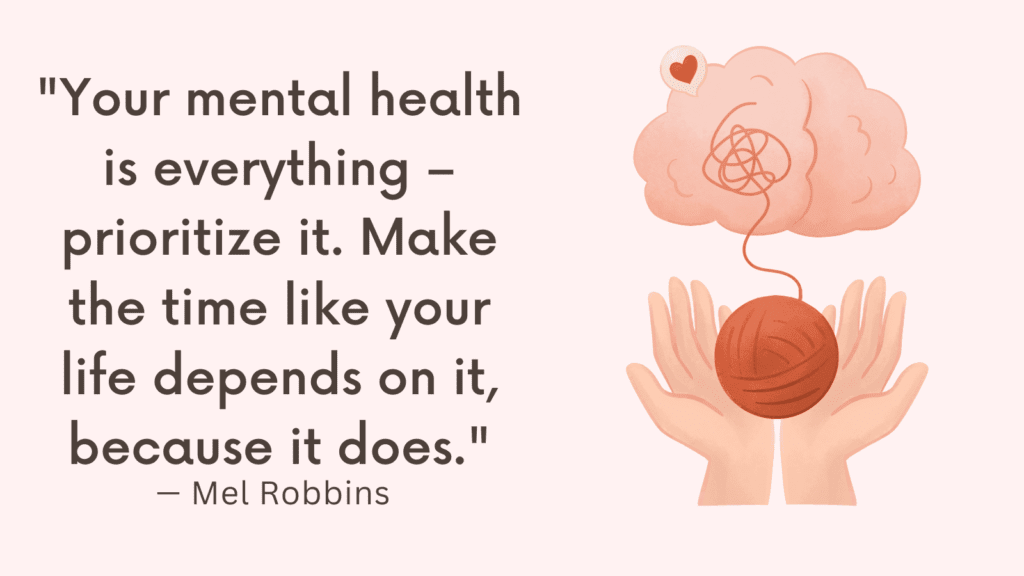This post contains some of the best tips on overcoming loneliness after death of a husband, wife, or partner.
8 Tips on Overcoming Loneliness After Death of Your Husband, Wife, or Partner
It’s entirely understandable that losing a spouse or partner can leave you feeling profoundly lonely.
It’s a significant and life-altering loss that can disrupt your sense of connection, companionship, and emotional support.
Overcoming the deep sense of loneliness that often accompanies this type of loss is a complex and deeply personal process, but there are strategies and techniques that can help you navigate this challenging terrain.
Here are some evidence-based tips to consider as you work through your grief and strive to find a sense of connection and meaning in your life after the death of your husband, wife, or partner.
1. Acknowledge and Validate Your Feelings:
It’s important to recognize that feeling lonely after the death of your partner is a natural and common response to such a significant loss.
Allow yourself to experience and express the range of emotions you may be feeling, including sadness, anger, longing, and emptiness.
Remember that your feelings are valid, and it’s okay to give yourself permission to grieve.
2. Engage in Meaningful Activities:
Engaging in activities that bring you a sense of purpose, joy, or fulfillment can help counteract feelings of loneliness.
This might include pursuing hobbies you enjoy, volunteering for a cause that is meaningful to you, or engaging in creative endeavors that offer a sense of accomplishment.
Related: How Do Widows Cope With Loneliness? Top 10 Ways
3. Cultivate New Relationships and Connections:
While it may seem daunting, seeking out opportunities to build new connections with others can help combat loneliness.
Consider joining clubs, classes, or social groups where you can meet new people and form friendships based on shared interests or experiences.
4. Create Rituals and Honoring Practices:
Creating rituals or practices that honor the memory of your partner can provide a sense of connection and continuity.
This might include setting aside time to reflect on fond memories, creating a tribute in their honor, or participating in activities that hold special meaning in relation to your partner.
5. Take Care of Your Physical Health:
Prioritizing your physical well-being through regular exercise, a balanced diet, and adequate sleep can positively impact your emotional well-being and help you cope with feelings of loneliness.
Related: Best +30 Grief Activities For Adults (+FREE Worksheets PDF)
6. Explore Self-Compassion and Self-Care:
Practice self-compassion by being kind and understanding toward yourself as you navigate this difficult period.
Engage in self-care activities that promote relaxation, comfort, and emotional well-being, such as meditation, mindfulness practices, or spending time in nature.
7. Set Realistic Expectations for Your Healing Process:
Recognize that overcoming loneliness after the death of your partner is a gradual and non-linear process.
Be patient with yourself and acknowledge that there will be good days and challenging days along the way.
8. Consider Support from Spiritual or Religious Communities:
If spirituality or religion is an important aspect of your life, seeking support from your faith community or engaging in spiritual practices that provide solace and connection can be a valuable source of comfort.
Related: Grief Comes In Waves: Top 12 Lessons From Grief No One Talks About

The Emotional Journey of Widowhood
Widowhood is one of life’s most profound emotional journeys, marked by grief, adjustment, and the slow, painful process of rebuilding a life after loss. While every widow’s experience is unique, there are common emotional stages and challenges that many face along the way — each deserving deep compassion and patience.
1. Intense Grief and Shock
In the early days, you may feel overwhelmed by sorrow, disbelief, or even numbness, struggling to comprehend the reality of your loss.
2. Waves of Loneliness
Even when surrounded by others, you may experience deep loneliness, missing not just your partner’s presence but the shared life and daily connection you once had.
3. Loss of Identity or Role
You may feel disoriented, wondering, “Who am I now?” as you adjust to life without the roles, routines, and shared dreams you built as part of a couple.
4. Anger, Guilt, or Regret
Feelings of anger toward circumstances, guilt over past actions or decisions, or regrets about unresolved conversations often surface during grief.
5. Physical and Emotional Exhaustion
Grief is not just emotional; it’s physical. You may experience fatigue, sleep disturbances, aches, or a sense of being weighed down by sadness.
6. Navigating Social Shifts
Relationships with friends, family, or social circles may change — some people withdraw, others offer help awkwardly, and you may feel unsure where you now fit.
7. Struggling With Everyday Decisions
Simple tasks and decisions can feel overwhelming as you adjust to handling everything alone and navigating unfamiliar responsibilities.
8. Searching for Meaning or Purpose
At some point, many widows wrestle with spiritual questions, existential pain, or the longing to find meaning in their loss and purpose in their continued life.
9. Moments of Relief or Guilt
You may experience moments of relief, peace, or even joy — followed by guilt for feeling anything positive. These mixed emotions are a natural part of healing.
10. Gradual Rebuilding and Integration
Over time, the raw pain softens, and you begin to integrate the loss into your life story — learning to carry love and grief side by side while slowly stepping into new chapters.
Conclusion
While these strategies can offer valuable support as you work through feelings of loneliness after the death of your partner, it’s important to approach this journey with self-compassion and understanding.
Grieving is a deeply personal process, and it’s essential to honor your own unique experiences and emotions as you navigate this challenging chapter of your life.
If you find that these feelings of loneliness are significantly impacting your daily functioning, don’t hesitate to seek the guidance of a mental health professional who can offer personalized support and assistance in your healing journey.



